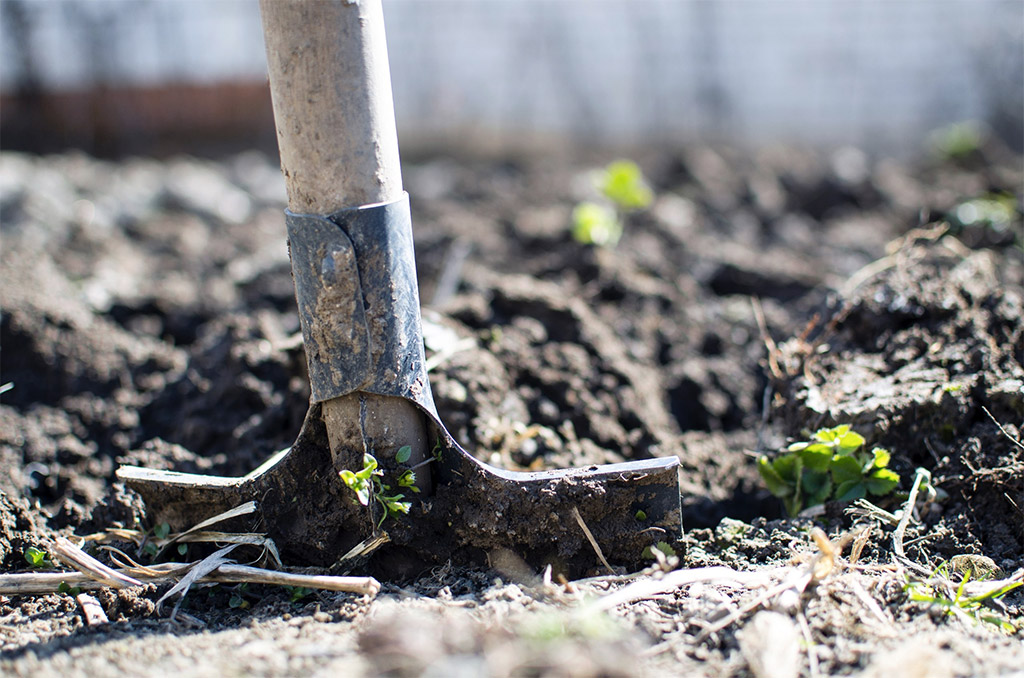How To Clear Weeds Without Herbicides

One of the questions most commonly asked by those new to organic gardening is how to clear weeds without herbicides. Often, the answer is simpler than you might imagine. But before you go in all guns blazing, would-be organic gardeners should always ask themselves – what is a ‘weed’? Do I really need to get rid of these plants in the first place?
Right Plant, Right Place?
Before we go on to discuss clearing weeds without herbicides, let us take a moment to consider what a weed is. Weeds are simply those plants that grow where we do not want them. They often tend to be native plants, ideally suited to your garden environment. However, they may not always be a detriment to a garden – and we just need a little attitude adjustment to see that they don’t need to be removed at all.
Sometimes, organic gardeners should consider so-called ‘weeds’ as useful additions to a garden. Weeds can sometimes be a boon. Weeds might:
- Attract wildlife to our gardens – providing a food source or habitat for our lovely honey producing bees and other pollinators, or other beneficial creatures.
- Be a valuable source of fast-growing biomass. (Organic matter that can be added to a compost heap, used as mulch, or used to make plant feed.) Some weeds can help us gather nutrients and add these back to our gardens.
- Be useful to us for a range of practical purposes… as dyes, fodder, herbal remedies etc…
When we see weeds as useful, weeding does not seem like such a pain.
Eating the Weeds
Another way in which some common weeds can be useful is as edible plants. Most people are surprised to learn that some common weeds, such as the stinging nettle or dandelion, are good additions to our diet. Weeding can become another sort of harvesting. And when weeding becomes harvesting, it can become a much more appealing garden chore.
Casual Weeding
Not all weeds, of course, are desirable additions to a garden and there will always be some weeds that need to be got rid of. Invasive species should, of course, be removed wherever possible. And even useful weeds must be removed when they grow in the wrong places and compete with our food crops.
When we garden organically, without using harmful chemicals, there will always be some work involved in weeding. The key to avoiding stress is to take a casual approach. Weed little and often to keep on top of things and you will be far less likely to become overwhelmed by the challenge.
Keeping Weeds Down
The good news for busy organic gardeners is that there are ways to reduce the number of weeding that needs to be done. Some measures that you can take to keep weeds down are:
- Mulching. A thick organic mulch between annual or perennial plants will suppress weeds by preventing sunlight from reaching the soil surface.
- Adopting a ‘no dig’ approach and disturbing the soil as little as possible.
- Avoiding bare soil as much as possible. Placing annual crop plants close together, utilising ground cover plants, and creating ‘guilds’ (polycultures) or ‘forest gardens’ are all ways to reduce the space and resources available to weeds.
- Be water-wise – water and irrigate crops carefully, directing water to where it is needed and thereby reducing the amount available to unwanted weeds.
The ‘Nuclear’ Approach For Organic Gardeners
There are times, of course, where weeds can get out of hand. Whether trying to clear a new area for cultivation, or keeping paving or patios clear, an alternative ‘nuclear’ approach is required in order to get rid of a larger number of weeds. Organic ‘nuclear’ options include:
- Using a flame-weeder to burn weeds.
- Pouring boiling water over cracks in paving/ on a patio.
Elbow grease, nature and patience are usually all that you will need to keep a healthy organic garden.

